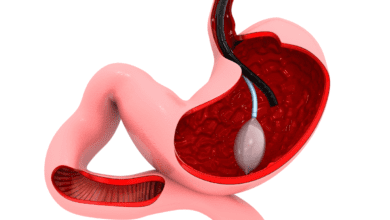Untie the Knot: Weight Loss & Your Mental Health

Many people embark on weight loss journeys with a laser focus solely on physical changes. However, a crucial aspect often overlooked is the mind-body connection. This guide explores the well-established link between weight loss and mental health, offering strategies to nourish both for lasting success.
Understanding the Link Between Weight Loss and Mental Health
There’s a clear connection between obesity and mental well being. According to the Mental Health Foundation UK, over 60% of adults with a common mental health disorder are overweight or obese. This two-way street means mental wellbeing can significantly impact efforts on losing weight, and weight issues can negatively affect mental wellbeing.
Breaking the Cycle: How Mental Health Impacts Weight Loss
Mental health struggles can hinder weight loss efforts in several ways:
- Depression: Low mood and fatigue can decrease motivation for the exercise and healthy eating habits essential for losing weight.
- Anxiety: Stress eating and comfort food choices fueled by anxiety can lead to weight gain.
- Body Image Issues: Negative self-perception about weight and body shape can fuel unhealthy relationships with food and exercise, creating a cycle that perpetuates weight struggles.
Strategies for Healthy Weight Loss and Mental Wellbeing
Approach to lose weight with a holistic perspective that integrates mental wellbeing is key. Here are some strategies to create a sustainable and supportive environment for both:
Seek Professional Support
Talking to a therapist or counselor can help address underlying mental health issues that may be impacting your weight loss journey. They can equip you with valuable tools for stress management, emotional eating, and developing a healthy body image.
Practice Mindfulness
Mindfulness involves focusing your awareness on the present moment without judgment. Studies have shown that mindfulness practices like meditation can reduce stress-related eating and promote healthier food choices. By calming the mind, meditation can help you become more aware of hunger and fullness cues, allowing you to make conscious eating decisions.
Focus on Progress, Not Perfection
Setting realistic goals and celebrating small victories is crucial. Focusing on progress fosters self-compassion and prevents discouragement, which can lead to unhealthy coping mechanisms like emotional eating. Celebrate non-scale victories like increased energy levels, improved sleep, or mastering a new exercise routine.
Cultivate a Support System
Surround yourself with positive and supportive people who encourage healthy habits and celebrate your progress. This can include friends, family, a support group, or a registered dietician. Having a strong support system can provide encouragement, accountability, and a sense of belonging during your journey.
Nourishing Your Mind and Body for Lasting Change
Developing healthy habits for both body and mind is essential for sustainable weight loss. Here are some key areas to focus on:
- Prioritize a Balanced Diet: Focus on whole foods like fruits, vegetables, and lean proteins for optimal nutrition. These foods provide essential vitamins, minerals, and fiber that keep you feeling energized and satiated throughout the day.
- Regular Exercise: Aim for at least 30 minutes of moderate-intensity exercise most days of the week. Finding activities you enjoy makes exercise more sustainable in the long term. Explore activities like brisk walking, swimming, dancing, or team sports.
- Quality Sleep: Aim for 7-8 hours of sleep each night. Sleep deprivation disrupts hormones that regulate appetite and metabolism, making it harder to manage weight and cravings.
Overcoming Emotional Eating and Stress-Related Weight Gain
Emotional eating is using food to cope with negative emotions like stress, anxiety, or boredom. Here are some tips to overcome emotional eating and prevent stress-related weight gain:
- Identify Your Triggers: Recognize the situations or emotions that prompt you to eat unhealthily. Keep a food journal to track your eating patterns and identify emotional triggers.
- Develop Coping Mechanisms: Find healthy ways to manage stress, such as exercise, meditation, journaling, or spending time in nature. Engaging in activities you enjoy can help reduce stress and prevent resorting to food for comfort.
- Practice Mindful Eating: Pay attention to hunger and fullness cues. Eat slowly and savor your food, focusing on the taste and texture. This allows you to become more aware of your body’s signals and avoid overeating.
Mindfulness and Meditation for Weight Loss Success
Mindfulness and meditation have emerged as powerful tools for weight loss success.
- Meditation Reduces Cravings: By calming the mind and reducing stress hormones, meditation can help reduce cravings for unhealthy foods.
- Mindfulness Encourages Intuitive Eating: Mindfulness practices foster a more mindful connection with food, allowing you to make conscious choices based on your body’s needs rather than emotional triggers.
Remember, weight loss is a journey, not a destination. By integrating mental care and mindfulness practices with healthy eating and exercise





